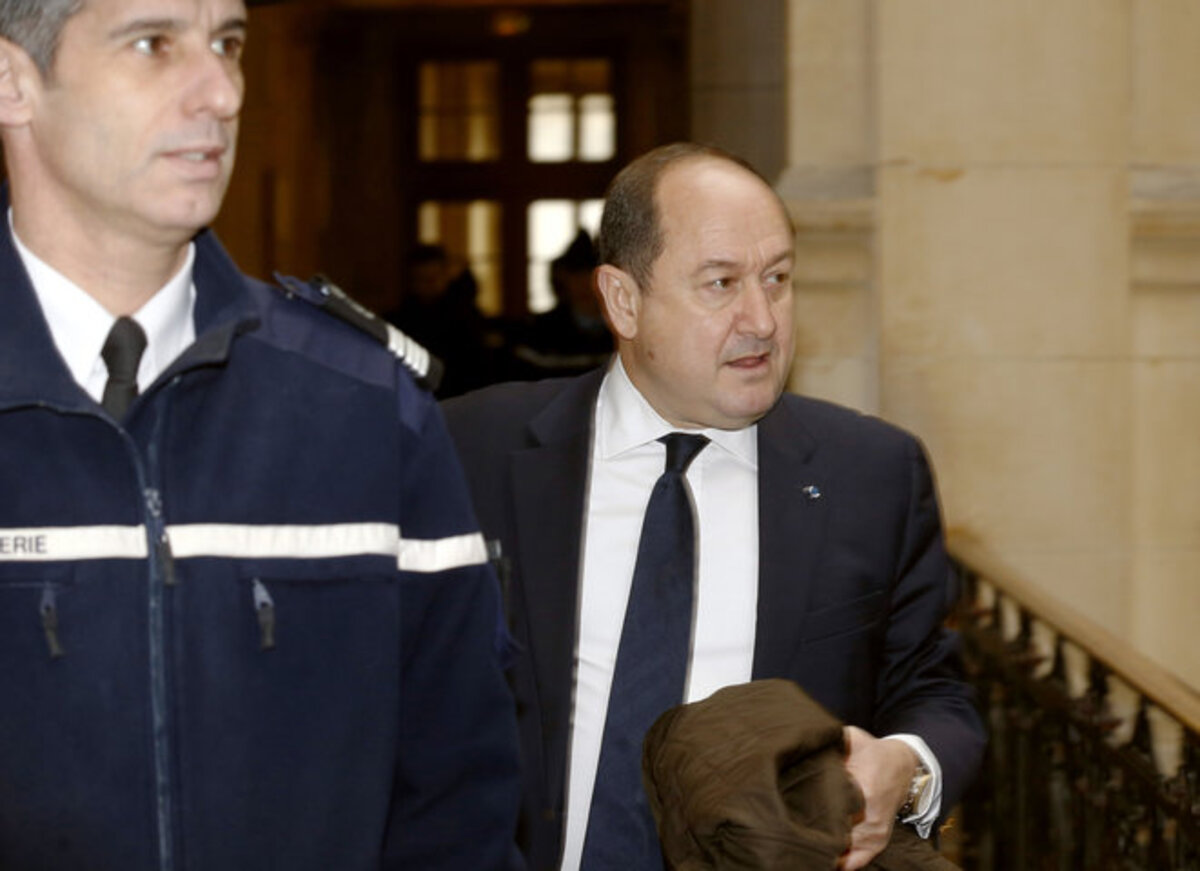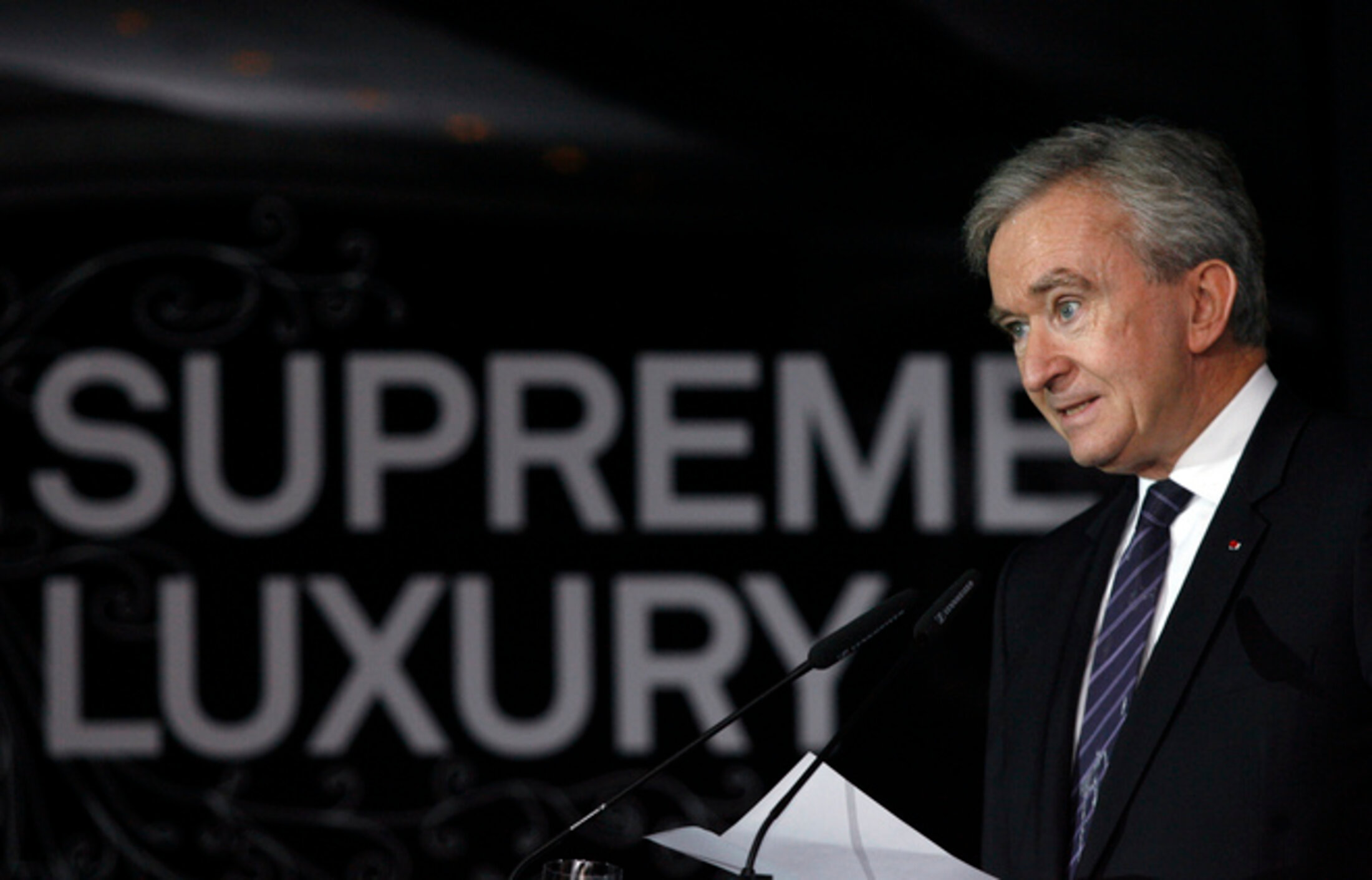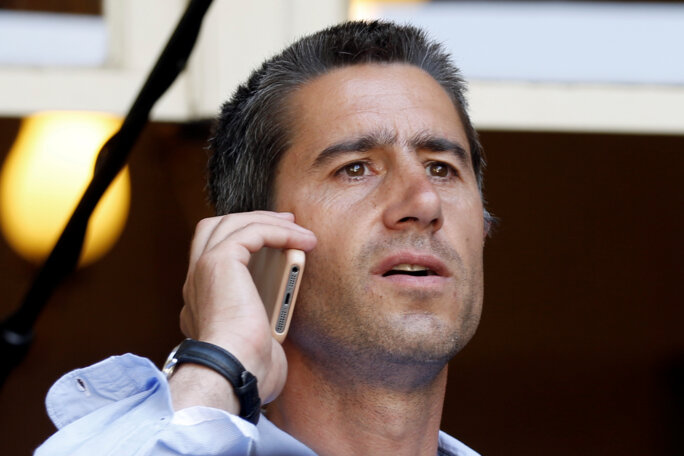Mediapart is publishing a series of recordings of police phone taps involving the former head of France's domestic intelligence agency, Bernard Squarcini. Squarcini, nicknamed 'La Squale' or 'The Shark', was head of the agency – then called the Direction Centrale du Renseignement Intérieur and now the Direction Générale de la Sécurité Intérieure or DGSI - from 2008 to 2012 during the presidency of his close ally Nicolas Sarkozy.
The recordings are of phone taps targeting Squarcini in 2013 after he had left the agency and had begun a new career in private intelligence.
The recordings reveal the existence of a form of state within a state, where public and private interests, political intelligence, economic espionage and the involvement of the police all overlapped.

Enlargement : Illustration 1

One of Squarcini's major clients in 2013 was the French luxury goods group LVMH, whose chair and chief executive is billionaire Bernard Arnault. At that time, between March 6th and April 30th 2013, Bernard Squarcini was the object of phone taps by anti-corruption police. The recordings were ordered as part of a judge-led investigation opened at the end of 2012, a year after 1.5 million euros in cash was found in a briefcase belonging to businessman Ziad Takieddine when he returned to France from Tripoli in Libya.
Takieddine, who is also a key figure in the alleged Libyan funding of Sarkozy's 2007 election campaign, was later convicted and fined 375,000 euros for not having declared money received from Muammar Gaddafi's regime.
Squarcini himself became a subject of interest because at the time he moved in the same circles as some of the figures in the Libyan case. So detectives acting under the authority of investigating judge Renaud Van Ruymbeke intercepted the former spy chief's phone calls. However, most of the recordings were not transcribed even though they were all logged. The reason is that the subject matter heard by the police went well beyond the confines of the Takieddine/Libyan case.
Nonetheless, on June 26th 2013 a divisional commander from the national fraud squad, the Division Nationale des Investigations Financières et Fiscales (DNIFF), wrote a summary report to Judge Van Ruymbeke to inform him that certain facts unearthed in the Squarcini tapes still merited the attention of the judicial authorities. The police chief also said that even though the tapes had not been transcribed they remained documented for future “use”. In other words, they were archived and left available for a further investigation if required.
However, this report languished for several years in the judicial archives, and no investigation took place into the facts it contained.
Yet the importance of these phone taps, as summarised by the police commander's report, was clear. They showed the interaction of Squarcini with former president Nicolas Sarkozy's office to obtain confidential state information about the Cahuzac affair, when the former budget minister Jérome Cahuzac was accused of having a secret foreign bank account. They highlighted the use of the police by the multinational group LVMH to find information on the progress of potentially troubling legal cases. And they revealed links with some police officers in order to obtain information on investigations in the French Mediterranean island of Corsica.
It was another three years before, on May 10th 2016, the archived police report was finally added to another investigation, this one specifically targeting Bernard Squarcini. It was launched by judge Serge Tournaire but has since been passed on to his successor Aude Buresi. Squarcini has been formally placed under investigation – in French law, one step short of charges being proffered - under several different headings in this case, in relation to facts he either denies or says are not criminal in nature.

Enlargement : Illustration 2

In particular Squarcini is said to have used and abused his former networks inside the police and the intelligence services to illegally obtain confidential information on numerous issues for his powerful clients, including LVMH.
This time the detective work in the case was handed to officers from the police watchdog the Inspection Générale de la Police Nationale (IGPN). They started to examine the tapes of the 2013 phone taps on Bernard Squarcini that had been ordered as part of a completely different investigation. IGPN officers transcribed the tapes and these transcripts were then added to the case file.
However, Mediapart discovered that the IGPN had not added to the dossier a significant amount of potentially embarrassing information for Bernard Squarcini and those close to him. In other words, the formal investigation is lacking some of the factual elements in the case.
In pursuit of our mission to inform the public of issues that are in the general interest, Mediapart has taken the decision to publish these facts, which contribute to the democratic debate over the practices of some senior intelligence agency officials and the police. We are doing so by broadcasting extracts of the police phone taps that have so far been ignored by the investigation.
Back in 2019 Mediapart had revealed how the independent magazine Fakir, run by journalist and future Member of Parliament François Ruffin, had been spied on by a private security firm linked to LVMH. “I have no information about this matter,” the boss of the French group, Bernard Arnault, told the police at the time.

Enlargement : Illustration 3

The first episode of our series called 'Le Squale, opérations secrètes' ('Le Squale, secret operations') now proves that management at LVMH did indeed directly ask Bernard Squarcini to “infiltrate” Fakir so that it could be spied on in real time and to discover its future plans.
The tapes also highlight the power of Squarcini's network, which was able to call on the intelligence services or the police at the click of a finger to calm the agitprop of a publication that was seen as having become a little too spirited. The magazine sold tee-shirts ironically emblazoned 'I Love Bernard' and generally poked fun at LVMH, which is led by Bernard Arnault. In other words, Fakir was a provocation too far.
The request to infiltrate Fakir was made by Arnault's right-hand man, Pierre Godé, then vice president of the group. He died in December 2018. The operation to spy on the magazine and François Ruffin was overseen from start to finish by Bernard Squarcini. The former spy chief used both the intelligence services and the police to try to thwart Ruffin who two years later, in 2015, went on to make a successful documentary on Bernard Arnault called 'Merci Patron!' ('Thanks Boss!').
In the second part of the series, Mediapart reveals how Bernard Squarcini drew heavily on the police and state intelligence services to help LVMH in other ways.
The recordings of the phone taps show how Squarcini equipped Bernard Arnault's bodyguards, obtained confidential reports from the Élysée, speeded up the issue of passports for the group's executives for business trips, carried out tax investigations and monitored the progress of legal cases that were of interest to the luxury goods group. The former spy chief brought together back room operations and, in particular, the machinery of the state to serve entirely private ends.
“You see? We're working for you, we'll get you to give us our fee,” jokes a state official to Squarcini in one extract. At the time the official concerned was number two at the national intelligence body the Conseil National du Renseignement (CNR), which was based at the Élysée and at the heart of François Hollande's presidency.
The third part of the series touches on some shadowy background to the Cahuzac affair, as mentioned earlier. Though the story of how President Hollande's budget minister Jérôme Cahuzac defrauded the tax authorities is well known, what is less well-known is the discreet war that took place in the back corridors of French politics at the time of the scandal.
Mediapart reveals how Bernard Squarcini used a senior official at the domestic intelligence agency the Direction Centrale du Renseignement Intérieur (DCRI) - now the DGSI – to obtain compromising information on Jérôme Cahuzac and the French Left, before making use of this to help former president Nicolas Sarkozy.
The aim was to give Sarkozy, who had become the number one opposition figure to François Hollande after losing to him in the 2012 election, ammunition against the new president. This was sometimes even done with the support of officials who worked at the Élysée itself.
In this investigation Mediapart has omitted information liable to breach anyone's privacy. The information revealed has also been put to the main people involved, in order to give them a chance to respond. Mediapart has sent around 30 detailed questions to Bernard Squarcini and around 15 to the LVMH group. Neither has made any comment.
It goes without saying that the revelation of this information does not prejudge anyone and that those involved have the right to a presumption of innocence.
This investigation reveals the raw information as featured in the phone taps. Their revelation contributes to a debate on issues that are in the general interest, with no other consideration involved. This information cannot be kept from the general public, as state institutions, particularly the police and intelligence services, are legally obliged to intervene to help the community in the public interest. When there are facts which question police practices and the legitimate nature of their interventions, and also raise questions about the hold that private interests have over public affairs, a journalist has to follow their ethical duty to publish such facts, so that democratic oversight can be properly carried out.
In doing this Mediapart is helping to “defend freedom of expression” as the Council of Europe defines the role of the press under article 10 of the European Convention on Human Rights.
On the contrary, not publishing this information would be a crime against journalism. As the Swiss-French political writer Benjamin Constant wrote in 1815: “You don't ward off dangers by shying away from them, on the contrary they grow bigger in the darkness that surrounds them.”
Here is the first recording, in French:
Investigation by Fabrice Arfi, with Pascale Pascariello (audio) and Armel Baudet (video).
As already stated, Bernard Squarcini has not commented on the tapes. He has said he will reserve his explanations for the judicial investigation. The LVMH group also said they would not comment.
The security consultant for LVMH, Jean-François Rosso, said he was “not familiar with the case”.
The former head of police intelligence or Renseignements Généraux (RG) for Paris, René Bailly, whose name appears in the recordings, said it was part of his remit to watch over public order, including at general assemblies held by large companies. He said he had never given any confidential information to Bernard Squarcini.
The former police officer Hervé Seveno, who is also mentioned, said he had never had direct contact with LVMH, and had only dealt with Bernard Squarcini. He added: “You have to remember that the people at Fakir were capable of carrying out violent actions. They swung chairs around.”
The former vice-president at LVMH Pierre Godé died in February 2018.
The judge Laurent Marcadier said that he “could not react to extracts” which he said he was just hearing about and of which he had been unaware.
No one else mentioned in the tapes wanted to comment.
-------------------------
If you have information of public interest you would like to pass on to Mediapart for investigation you can contact us at this email address: enquete@mediapart.fr. If you wish to send us documents for our scrutiny via our highly secure platform please go to https://www.frenchleaks.fr/ which is presented in both English and French.
-------------------------
English version by Michael Streeter


